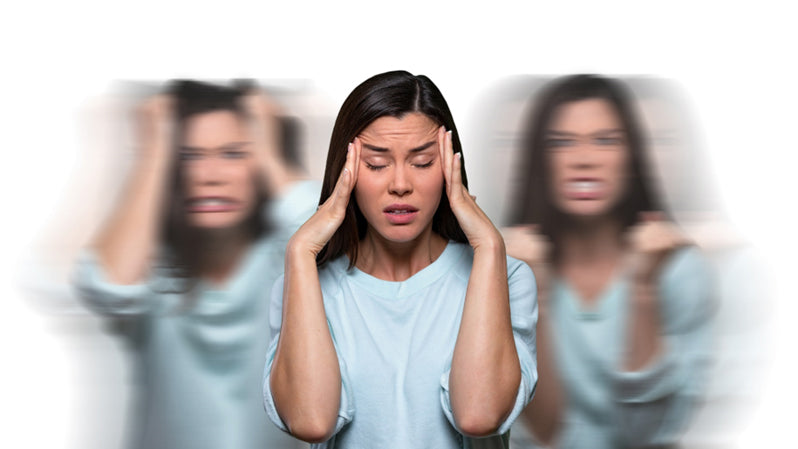Anxiety is a common facet of the human experience, a universal emotion that each of us encounters at some point in our lives. Yet, when feelings of overwhelming fear and distress take centre stage, disrupting our ability to engage in everyday activities, it may signal the presence of an anxiety disorder.
Diverse Anxiety Disorders:
The world of anxiety is far from one-size-fits-all, with a plethora of anxiety disorders, each with its distinct set of symptoms. Among these, the most prevalent anxiety disorders include:
Generalized Anxiety Disorder (GAD):
GAD is characterized by persistent, exaggerated worrying about the ordinary aspects of daily life. This chronic concern can occupy a substantial portion of each day, making it challenging to focus on essential tasks.
Social Anxiety Disorder:
Going beyond mere shyness, this disorder induces intense fear related to social interactions, often stemming from irrational concerns about humiliation or negative judgments from others.
Panic Disorder:
Panic Disorder stands out for its sudden, overwhelming panic attacks and feelings of terror. These episodes can strike unexpectedly, sometimes occurring repeatedly without warning.
Phobias:
Phobias evoke potent and irrational fears in response to specific places, events, or objects.
Common Anxiety Symptoms:
While each anxiety disorder presents its unique symptoms, they all share a common thread: unwarranted and persistent fear or worry in situations that are not inherently dangerous. Individuals grappling with anxiety disorders often experience a range of emotional and physical symptoms, encompassing:
Emotional Symptoms:
- Feelings of apprehension or dread
- Sensations of tension or restlessness
- Irritability
- A perpetual sense of anticipating the worst and heightened vigilance for signs of danger
Physical Symptoms:
- Palpitations or a racing heart
- Shortness of breath
- Sweating, tremors, and muscle twitches
- Headaches, fatigue, and difficulties with sleep
- Gastrointestinal disturbances like upset stomach, frequent urination, or diarrhoea
Origins of Anxiety:
The development of anxiety disorders is believed to be influenced by multiple factors:
Genetics:
Research points to a genetic predisposition for anxiety disorders, as they often appear to "run in families," with a higher-than-average occurrence among relatives.
Environmental Influences:
Stressful or traumatic life events, such as abuse, the loss of a loved one, exposure to violence, or extended periods of illness, have been linked to the emergence of anxiety disorders.
Diagnosis and Evaluation:
To diagnose anxiety disorders, medical professionals typically engage in an extensive evaluation process, which includes interviews and laboratory tests. Once any underlying physical health concerns are ruled out, the individual may be referred to a mental health specialist.
Mental health professionals employ the Diagnostic and Statistical Manual of Mental Disorders (DSM) to identify the specific anxiety disorder responsible for the symptoms and to assess the presence of any concurrent mental health conditions. A comprehensive approach to treatment is often the most effective path to recovery.
Treatment Modalities:
Each anxiety disorder needs a unique treatment plan. Common treatment approaches for anxiety disorders encompass:
Psychotherapy:
Cognitive Behavioral Therapy (CBT) is a common method to address the psychological aspects of anxiety disorders.
Medications:
Antianxiety medications and antidepressants may be prescribed to alleviate symptoms and manage anxiety.
Complementary Health Strategies:
Techniques for stress reduction and relaxation are supplementary strategies that can complement primary treatments and contribute to the management of anxiety.
In conclusion, anxiety is a multifaceted mental health issue that takes on various forms. Recognizing the symptoms, exploring potential causes, and seeking suitable treatment can substantially enhance the quality of life for individuals contending with anxiety disorders. Visit our Therapist Panel if you have more queries or if you are suffering from any issue that leads to anxiety.



Leave a comment
All comments are moderated before being published.
This site is protected by hCaptcha and the hCaptcha Privacy Policy and Terms of Service apply.